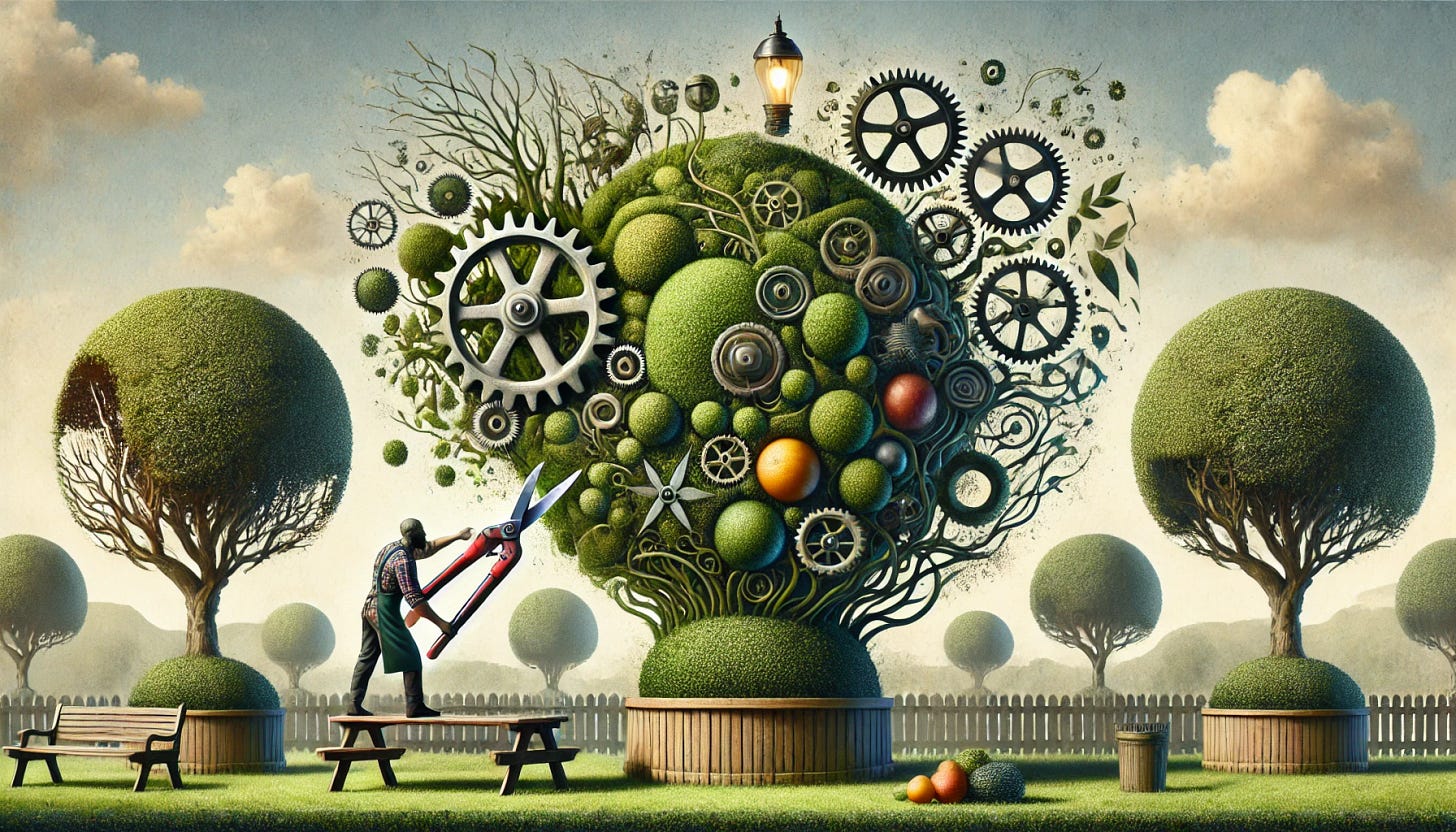If you go to a fiction writer's workshop they may tell you about the "madman and the critic" and they teach you how to silence the critic so that the madman can produce a lot of output that can later be refined to product by the critic. And the material accessible to the writer is what's in her head and what she can find by research; and this mass of ideas is combined in many ways to form something interesting.
So creative writing is a see-saw between variation and selection. No surprise. According to Gary Cziko in his book "Without Miracles", all useful novelty in the universe originates from processes of variation and selection. Species in nature, cars on the road, ideas in the brain. All Selectionism. All Holistic.
All humans are born and remain Holistic problem solvers... where the favorite recipe for solving a problem is "whatever worked last time in a similar situation". This is the "jumping to conclusions on scant evidence" part. In situations that are a bit different this time, we perform a multi-level pattern match operation that picks a plausible interpretation and outcome through processes of variation and selection. And yes, this is also creative; pattern matching in cognition and in learning is a creative act since part of problem solving and learning lies in matching and fitting in new information to old, to the catalogs of past experience that we carry around.
And sometimes this pattern matching is overly permissive and leads us astray. So we created Science and peer review and other mechanisms to strengthen and support the critic functionality.
In a perverse way, if you know what you are doing, then you are doing engineering, but if you don't know what will happen when you push that button, then you are doing science. And the kind of AI research I do is exactly like that. It is "experimental programming". Because we don't really know what will happen when we hit RETURN. If we did, then it would be programming, not research.
Both extremes on this scale have problems. So we tend to swing back and forth between overly scientific views (Scientism, hardline Reductionism) and Holism (where lots of energy is wasted on unconfirmed hypotheses). This works on timescales of milliseconds in brains and computers, and over decades in society in what is viewed as fashionable and/or reasonable approaches to problem solving. The late 50's were the first years of Rocket Science, which is thoroughly Reductionist. And we've had decades of innumerable Reductionist successes since then.
But we are about to swing pretty deeply to the Holistic side – possibly deeper than ever before. AIs (LLMs like ChatGPT) are popular exactly because they provide solutions to context-rich problems that require a Holistic approach. Science has solved lots of easy problems – those that were within scope. But:
The Reductionist train is running out of track
Complex problem domains are out of scope of science. The global economy and the stock market, cellular biology, drug interactions in the body, the structure and operation of the brain. The semantics of human languages.
And protein folding. Which was solved using Deep Learning, one of the fundamental algorithms preceding Large Language Models like the GPT family. These algorithms are Holistic – instead of using rules, they learn the domain from examples, and then use pattern matching algorithms that make decent guesses in situations with incomplete data.
So AIs use weaponized guessing, and in so doing, are leaving science behind.
I shudder to observe that this adjustment of the place of Science in the world coincides (not by design, I'm sure) with a separate but strong anti-science sentiment in the US. This is unfortunate and may confuse some but they are problems at very different levels (epistemology and politics) and will likely require different solutions.
And now, when we have something we can call “AI”, a lot of people are very confused about why "AI" isn't as smart and as logical as various Reductionists had told them they would be. Because these machines are a lot more Holistic than anyone expected. And at the same time, they will raise the average IQ and hence scientific literacy of the country a fair bit by streamlining everything including education, work, research, and personal lives.
They will help us jump to better conclusions.


